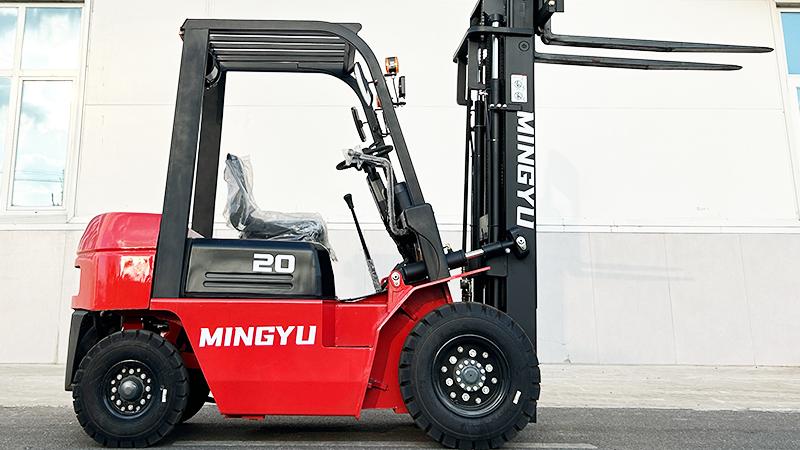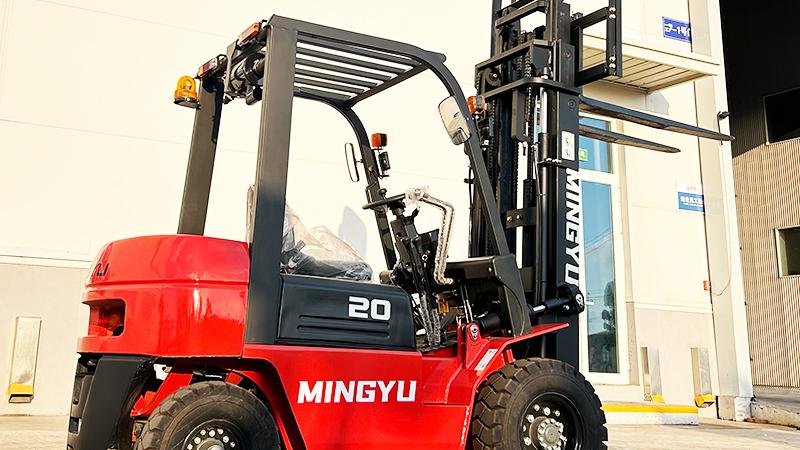Diesel forklifts have long been a staple in outdoor construction sites due to their durability, power, and ability to handle heavy loads in rough terrains. However, like any machinery, they come with their own set of advantages and disadvantages. Understanding these can help construction managers make informed decisions when selecting equipment for their projects.One of the most significant advantages of diesel forklifts is their power and performance. These machines are designed to handle heavy lifting tasks with ease, making them ideal for construction sites where large materials such as steel beams, concrete blocks, and heavy machinery need to be moved frequently. The robust engines in diesel forklifts provide high torque, which is essential for navigating uneven and rough outdoor terrains. Unlike electric forklifts, which may struggle on muddy or rocky surfaces, diesel forklifts maintain consistent performance regardless of ground conditions.
Another benefit of diesel forklifts is their fuel efficiency and operational range. Diesel engines are known for their fuel economy, especially when compared to gasoline-powered alternatives. This makes them cost-effective for long shifts and large construction sites where refueling opportunities may be limited. Additionally, diesel fuel is widely available, reducing downtime associated with searching for specialized fuel types. The extended runtime of diesel forklifts ensures that productivity remains high throughout the workday.Durability is another key advantage. Diesel forklifts are built to withstand harsh working conditions, including exposure to dust, rain, and extreme temperatures. Their rugged construction means they require less frequent maintenance compared to electric forklifts, which may suffer from battery degradation or electrical issues in challenging environments. The simplicity of diesel engines also makes repairs more straightforward, reducing downtime and maintenance costs over the long term.
Despite these advantages, diesel forklifts also have notable drawbacks. One of the most significant concerns is their environmental impact. Diesel engines emit higher levels of pollutants, including nitrogen oxides (NOx) and particulate matter, compared to electric or even gasoline-powered alternatives. This can be a major issue for construction sites located near residential areas or in regions with strict environmental regulations. The noise pollution generated by diesel forklifts is another downside, as it can contribute to a disruptive work environment and may require additional measures to mitigate.Operating costs can also be a concern. While diesel fuel is generally more efficient, its price can fluctuate significantly, impacting the overall budget of a construction project. Additionally, diesel engines require regular maintenance, including oil changes, filter replacements, and exhaust system checks, which can add to the total cost of ownership over time. In contrast, electric forklifts have lower ongoing maintenance costs, though their initial purchase price may be higher.
Another disadvantage is the initial investment required for diesel forklifts. These machines tend to be more expensive upfront compared to some other types of forklifts. However, their longevity and durability often justify the higher initial cost for businesses that rely on heavy-duty lifting in outdoor environments.In conclusion, diesel forklifts offer unmatched power, durability, and fuel efficiency for outdoor construction sites, making them a popular choice for heavy-duty applications. However, their environmental impact, noise levels, and operational costs must be carefully considered. Construction managers should weigh these pros and cons against their specific project needs to determine whether diesel forklifts are the right fit for their operations.
Post time:Aug.15.2025



